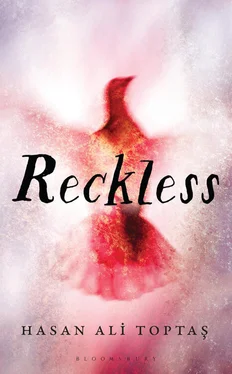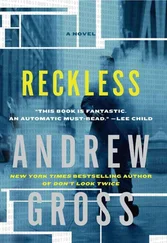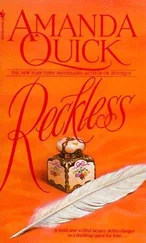‘You must remember,’ said Kenan, looking down in shame. ‘Please don’t make me tell you, please. I saw the shame in your face, when my mother brought it up; it didn’t pass me by. If you ask me, it’s a good time for me to introduce you to the village. Let’s go to the coffeehouse and drink some tea, say hello to a few people, give them a chance to welcome you. It would look a bit strange, wouldn’t it, to avoid them for too long, to stay so long out of sight.’
‘You’re right,’ said Ziya. ‘It wouldn’t be right, to stay out of sight.’
Leaving the fountain and the cool shade of the willows, they walked together to the village meydan .
‘Let’s go to the Coffeehouse of Mirrors,’ said Kenan. ‘That’s the first one we’ll pass, that’s why. Another time we can go to the Plane Tree Coffeehouse. They function like scales, almost. Sit down in one, and the other rises. Go to the other place, and the first one rises. That’s why we all try to keep things balanced, with some of us in one, and some in the other.’
‘All right, then. Let’s do that,’ said Ziya.
After they had walked a little further, and rounded a large turpentine tree to enter the village meydan , Kenan pointed out the grocery store on their left. It was a brick structure attached to a two-storey house. Its windows were painted blue, as was its door, and nailed to either side of the entrance were nets filled with brightly coloured plastic balls. Standing across the street was a group of boys exchanging sly glances.
Then one of them took a step forward. Staring through the door and into the darkness beyond, and in a husky voice, he yelled: ‘Boys! Tell me what that lazy grocer does?’
Clapping their hands, they answered as a chorus. ‘The lazy grocer weighs his balls!’ they shouted. ‘The lazy grocer weighs his balls!’
Rising to his feet, and rushing to the door, Ramazan the Grocer cried out, ‘One step closer, and I’ll smash your face in!’ He stood there glaring at the boys. But when he saw Kenan and Ziya, he was as ashamed as if he had been the one to be shouting about lazy grocers who weighed their balls — as ashamed as if he had actually been inside, weighing them.
And then, in a dreary voice still coloured by that shame, he turned to Ziya and said, ‘Welcome to our village.’
Without waiting for an answer, he turned to Kenan and, waving at the children who had escaped his grasp, he cried, ‘They’re crazy, those boys. Crazy! If it keeps on like this, I’ll wring their necks one day, I swear!’
Kenan and Ziya both smiled at him.
They reached the Coffeehouse of Mirrors, with its trellis and its oilcloth-covered tables. Husam the waiter was standing by the door. Settling themselves at a table in the shade, they asked him to bring them two glasses of strong tea. Ziya was worried that everyone was going to pounce on him and braced himself for a rush of questions, but that was not what happened. The villagers who stood up to come over to him one by one simply smiled and said welcome and returned to their seats, and whether they’d been drinking tea beforehand, or talking, or playing cards, they just picked up where they’d left off.
Just then, Kâzım the Bellows Man rushed into the village meydan . Walking straight over to their table, he reached out to wrap both his hands around Ziya’s, and there he remained, bowing and scraping and smiling broadly and shaking Ziya’s hand as if they’d been friends for forty years. And as he did so, he said, ‘I’ve been whiling my time away at the Plane Tree all afternoon, and God be my witness, I didn’t see you until just now. I hope you will excuse me!’ His eyes swept across the coffeehouse, like a child who has just been called to the front of the class to recite a poem; after greeting everyone there, he sat down at their table without waiting for an invitation. And at that moment, the atmosphere changed. Everyone perked up, as if Kâzım had come to make an important announcement. Slowly, very slowly, they put down their cards, and stopped speaking, and turned their creaking chairs in his direction. They watched him in silence, with bulging eyes. Oppressed and greatly annoyed by this attention, Ziya gave evasive answers to the intrusive questions Kâzım now asked him without preamble. And then, thinking that this man might give up asking questions if he paid him no attention, Ziya let his eyes travel over the other men in the coffeehouse. And so, for a while, he looked at their shoulders, their feet, and the hands sitting on their knees; then he looked at the chins they had cupped with their hands, and their wrinkled foreheads, and the suppressed curiosity playing in their eyes. Then, for a time, he looked at their prayer beads, and their tea glasses, and the smoke rising from their cigarettes. He looked at the raggedy old man who was sitting by himself in the sun, scratching the earth with his staff. Sensing Ziya’s eyes on him, the old man turned around abruptly to stare at him from behind his beard. Then he stretched out one of his feet and erased whatever it was he had been writing, passed a quick hand over his face, lowered his head into his chest, and fell asleep. Or rather, he fell silent, while a sleep as old as the ages drew him under.
After watching him slip away like that, Ziya turned back to Kenan. ‘Shall we go now?’
Excusing themselves to Kâzım and the other villagers, they got up and left.
The old man woke up as they passed. Raising his head, he grabbed Ziya by the wrist and pulled him towards him with a friendly smile. For a moment, they locked eyes, saying nothing.
‘So what’s this all about?’ the man said, reproachfully. ‘Aren’t we going to have a chance to talk?’
‘We will,’ said Ziya.
‘May you go in health and happiness,’ said the old man. ‘When you’re bored, come and find me, and we can sit and talk.’
Ziya nodded in agreement.
And then the old man’s face went sour. His eyes bored into Ziya’s, as if to measure his discomfort. Then he stood up and, hanging on Ziya’s arm, pulled him a few steps back
‘Do you know what?’ he said then. ‘Don’t ever say I didn’t warn you on the day you came, but you’re a city person. Stay here too long and your teeth will crumble.’
Ziya stood there looking at him, and said nothing.
‘You know why?’ the old man continued. ‘Because a man’s teeth come to resemble him. I know what I’m saying, and that’s why I say it. That’s why I just told you — come back when you’re bored, and we can talk.’
‘All right,’ said Ziya. ‘I will.’
Then Kenan took hold of his other arm and pulled him away. Leaving the old man to the sun, they walked off, side by side.
‘Hulki Dede always talks like that,’ said Kenan, when they were some distance away. ‘He’s the strangest man in the village. There’s no knowing what he’ll do next. Sometimes he refuses to say a word, for instance. He’ll just walk through the village like a black cloud, saying nothing. Or he’ll take a little sack of bread and go off to some corner, rest his staff on his knees, and stare miserably at the world around him, saying nothing. He flutters his eyes as if he’s praying, he looks at the mountains, and the birds, and the children, and the clouds and the wind, as if he’s chanting a prayer. And in the meantime, the bread sack at his knees fills up with ants. But he doesn’t so much as give these ants a look. Like I just said, he’s in some sort of trance. He’s looking into the world beyond. And after this has gone on for days and days, Hulki Dede comes back, and then suddenly he’s making these big pronouncements and speaking out of turn, and it’s almost as if he were trying to make up for all that silence. And you know what? The first time you hear them, the things he says sound crazy. But once those crazy words of his have been planted in your mind for a while, once they’ve been out in the world and met up with other words or just taken in a bit of their steam, well, it’s almost like magic, they begin to change before your eyes. Once they’ve found their place in the world, they gain something. They gain meaning. I don’t know, maybe that’s just how it seems.’
Читать дальше












